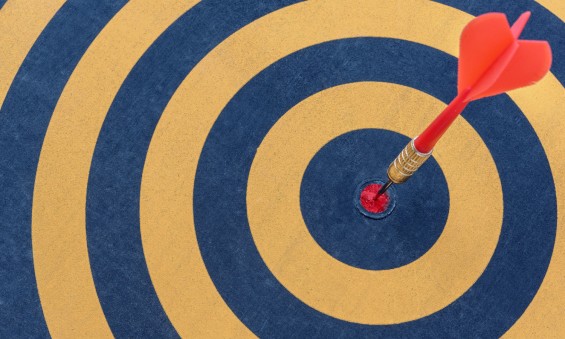
How to step out of the shop-spend-consume cycle
It doesn’t require a total overhaul of your life, but following a few simple steps can help you start consuming less, says Lucía González Schuett.
A few years ago, Lucía González Schuett embarked on a “personal rollercoaster journey,” as she puts it in a TEDxHHL Talk. And it all started when she looked at something that most of us have: a junk drawer.
She was disturbed by what she found — most of the things there were broken, incomplete or imperfect, but she had felt compelled to hold onto them. She questioned every item, asking questions like:
“Do I really need this? Does it add value? Is it worth the space that it takes up or the care it requires?”
And she made a radical decision: She vowed to go for a year without buying anything except for food.
Around the same time, she was going through a professional transition. She’d made a career in fast fashion, where her salary was partly based on commission — the more she could get people to spend, the more she earned. One of her responsibilities was to rotate the store’s contents so the merchandise would appear new to shoppers and they’d discover something they overlooked on a previous trip.
In 2018, González Schuett left the industry to go to business school and she chose to make it her no-buying year (which she discusses in a TEDxHECParis talk). Her experiences caused her to rethink consumption — on a personal and a societal level — and become aware of the invasive, ongoing pressures to acquire new stuff.
“The app I use to measure my performance when I go jogging is trying to tell me when it’s time for me to throw away the sneakers I’m wearing and buy a new pair,” says González Schuett, who is currently based in London. “The pillow I sleep on I recently found out has an expiration date.” She adds, “We collectively need to pause for a moment and wonder: Are we losing — or at least outsourcing — our very basic common sense to decide our needs by ourselves when it comes to consumption?”
It’s not realistic or feasible for most people to swear off shopping as she once did, and González Schuett gets that. She says, “It is possible for us to rethink our day-to-day behavior towards consumption, exercise the ability to appreciate things again, and eliminate that link between easy access and taking things for granted.”
She urges people to engage in what she calls a “scary yet extremely insightful exercise”: “getting over the want and becoming honest about the need.” In other words, she invites us to take an honest look at the things we want and we need and question whether we actually do.
There are many good reasons to regain control of your consumption. González Schuett suggests, “Maybe it’s for the environment, for the sustainability of future generations, for your personal finances, or for the sake of your peace of mind.”
To help you take back control, González Schuett shares these tips:
1. Let yourself run out of something before you re-buy or re-order. “Spend some time without it; in other words, try to miss it,” says González Schuett. “Because there’s so much to be learned from missing things. Plus, you’ll exponentially increase your short-term happiness once you get it again.”
2. Keep an item in your online shopping cart for a few days — or weeks — before buying it. You’ll reduce your chance of regretting an impulsive purchase when you find something better later, or realize you don’t actually need it at all.
3. Instead of immediately replacing something that’s broken, try fixing it first. It’s not always cheaper to buy something new, and you can support a local business or repair cafe by visiting them. You can also teach yourself some new skills. In her no-buying year, González Schuett learned to sew on replacement buttons, and she even watched a YouTube video to figure out how to repair her washing machine.
4. When you do buy, consider second-hand. By purchasing something that’s pre-owned, you’ll keep from adding to the sum total of things in circulation — since the thing you’ll buy is already out in the world — and you’ll also save money. When it comes to furniture, she points out that for people who live in cities, “we’re all moving around so frequently that second-hand items are more often than not hardly ever been used.”
5. Choose quality over quantity, especially when it comes to fashion. Try to pick things that are made to last, and when you are done, consider selling, donating or swapping them, instead of throwing them away.
6. Share what you have, and find others who will. Rather than buying a tool or gadget for a one-off project, “knock on your neighbor’s door when you need a screwdriver,” recommends González Schuett. And while you’re there, let them know what you have to lend, whether it’s a bike pump, snow blower or sewing machine. These relationships can benefit both of you. She says, “What a burden for both of you to each own both things and how enriching to go back to knowing your neighbors.”
7. Shift your mindset about stuff. As González Schuett puts it, “Consider yourself a custodian of things, rather than an owner.” When you think about it, you’ll realize that there are ways to enjoy things without owing them — take the library, for example.
She adds, “Ultimately, we know it isn’t the junk in our drawers that is going to make us happy but having the resources, the space and the time to dedicate to the things that truly matter.”
Watch her TEDxHHL talk:
ABOUT THE AUTHOR
Lucía González Schuett is head of retail projects at the Vestiare Collective, a global marketplace for pre-owned luxury and designer fashion.
This post was originally published on TED Ideas. It’s part of the “How to Be a Better Human” series, each of which contains a piece of helpful advice from someone in the TED community; browse through all the posts here.




